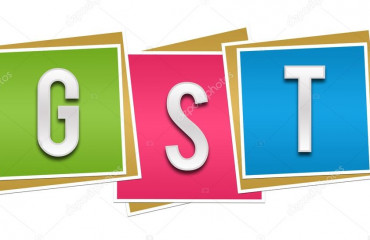
The GST Council is scheduled to meet on 22 June in the national capital.
Industry executives expect steps to make tax filings easier, relief for online gaming for their past tax dues and clarifications in the insurance sector.
- The GST Council is scheduled to meet on 22 June in the national capital.
- Industry executives expect steps to make tax filings easier, relief for online gaming for their past tax dues and clarifications in the insurance sector.
New Delhi: After a pause of more than two-months in policy making due to the national polls, Central and state governments are set to meet again for major policy decisions.
Federal indirect tax body the Goods and Services Tax (GST) Council is scheduled to meet on 22 June in the national capital, it announced on Thursday.
The agenda for the meeting will be finalized closer to the date but industry executives expect steps to make tax filings easier, relief for online gaming sector for their past tax dues and clarifications in the insurance sector.
The GST Council will also have to approve any legislative changes that may require the government to amend the Central GST Act through the finance bill to be presented in the forthcoming session of Parliament.
GST Council meeting
According to two people aware of discussions in the government, Union finance minister Nirmala Sitharaman, who chairs the GST Council, is also likely to hold separate discussions with state ministers, who would be in the capital, about the forthcoming union budget.
States usually raise their financing needs -- including greater leeway to make borrowings, which are capped by the Centre -- in pre-budget consultations. Utilization of the Centre's long= term interest-free loan to states for building infrastructure is also expected to figure in the talks.
However, demands for special category states for Andhra Pradesh or Bihar may be a "tall order" for the government given that the status was only given to hill states along India's borders in the past, the people cited above said.
The issue has come back in public debate after the elections given the backing that JD(U) of Bihar and TDP, which rules in Andhra Prdesh, give to the ruling Bharatiya Janata Party at the Centre.
Special category states get a higher share of Central funds and grants. Extending the same-with or without the special category state tag—could have huge fiscal implications, said one of the two persons quoted above, who spoke on condition of anonymity.
"Extensive consultations will be held for the full budget for FY25 and suggestions will be sought from states," said the person.
The person also said that the NDA government's 100-day agenda may see some modifications as to what would get implemented, given the changed political realities after the election.
Experts pitched for simplification of the basic customs duty structure in the finance bill to aid cross-border trade as the current system has over 27 different duty rates and over 100 specific or mixed duty slabs.
Currently, 85% of customs duty revenue comes from less than 10% of tariff lines, while 60% of tariff lines contribute less than 3% of revenue, explained Ajay Srivastava, founder of Global Trade Research Initiative (GTRI), a think tank on trade policies.
"With some adjustments, the average import tariff could be reduced from 18.1% to below 10% without impacting important products. Simplification is necessary to avoid global criticism, as highlighted by former US President Donald Trump calling India the 'tariff king,' said Srivastava.
The forthcoming session of Parliament to be conducted in two parts, starting 24 June, is unlikely to have a heavy legislative agenda given limited availability of time for departments to finalise pending Bills. "The focus of the session will be on presenting the budget and getting the finance bill passed," said the second person, who also spoke on condition of not being named.
Clarifications on taxability of online gaming sector for the period prior to October 2023, taxability of employee stock options and corporate guarantees are anticipated from the GST Council meeting on account of instances of litigation, said Abhishek Jain, Indirect Tax Head and Partner at KPMG.
The final session of the previous Lok Sabha ended on 10 February 2024. During its term, Parliament passed 221 Bills. At the end of this period, 20 Bills remain pending in Rajya Sabha while four Bills lapsed on the dissolution of Lok Sabha. The lapsed Bills include Electricity (Amendment) Bill 2022 and Inter-State River Water Disputes (Amendment) Bill 2019. The government also withdrew 21 Bills during the 17th Lok Sabha.
Email sent to the ministry of finance and to Secretary General of Lok Sabha on Wednesday seeking comments for the story remained unanswered at the time of publishing.
Sitharaman will present her sixth full Budget (for 2024-25) next month, laying out the new NDA government's policy priorities. The previous NDA government had scaled up capital expenditure to tap its multiplier effect on the economy, streamlined the budget by making it more transparent, lowered the fiscal deficit from 9.2% in FY21 to 5.8% in the revised estimates for FY24, and improved the efficiency in social benefits transfers. After taking charge on Wednesday, Sitharaman had said the reforms executed since 2014, when Narendra Modi first took charge as prime minister, will continue, providing further macroeconomic stability and growth for India. The minister also described India's growth story in recent years amid global challenges as "commendable", and said the economic outlook for the next few years is optimistic.
